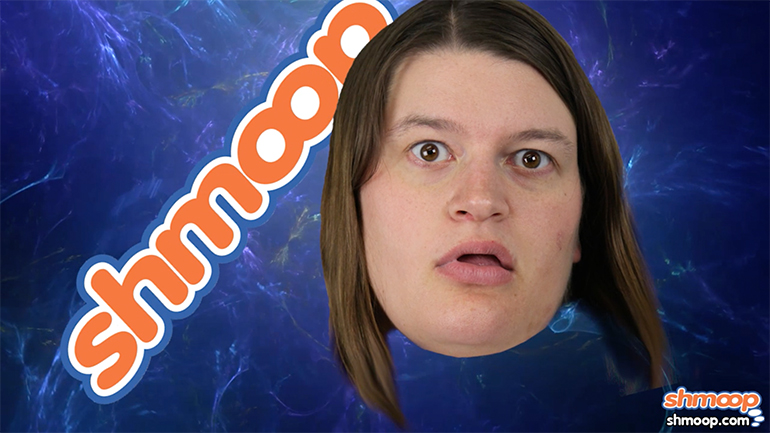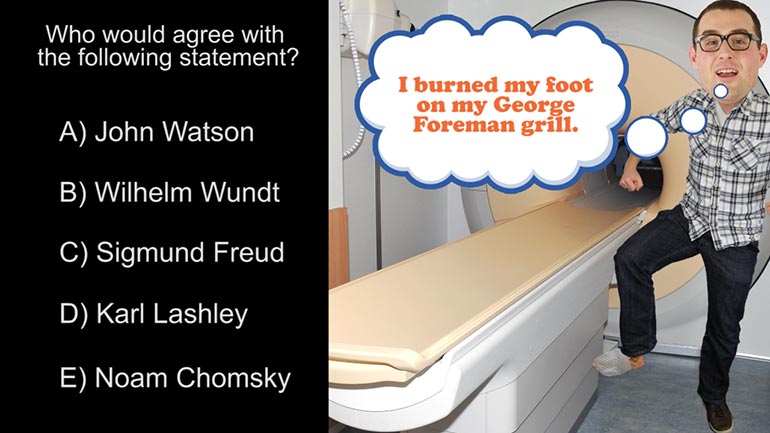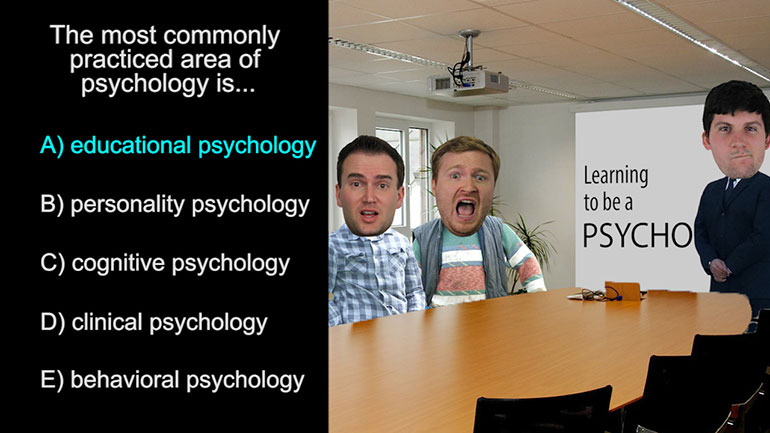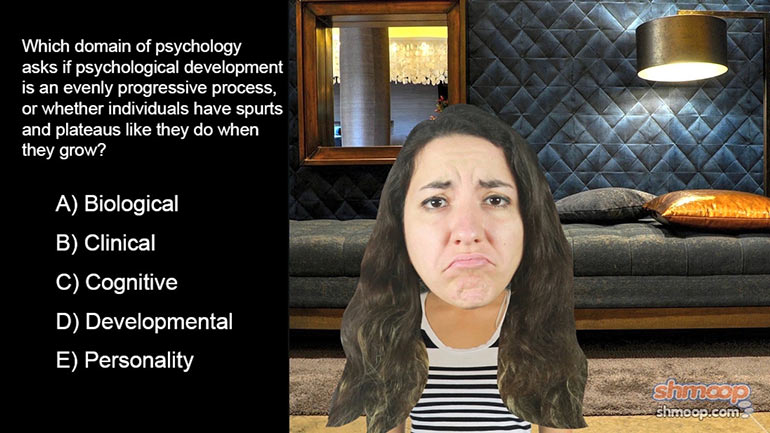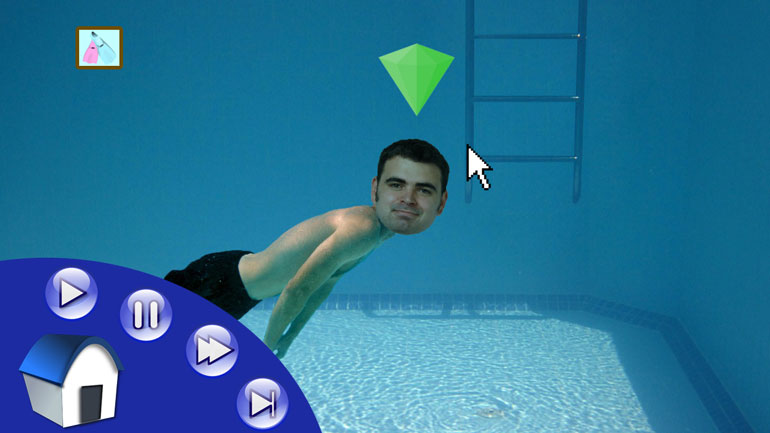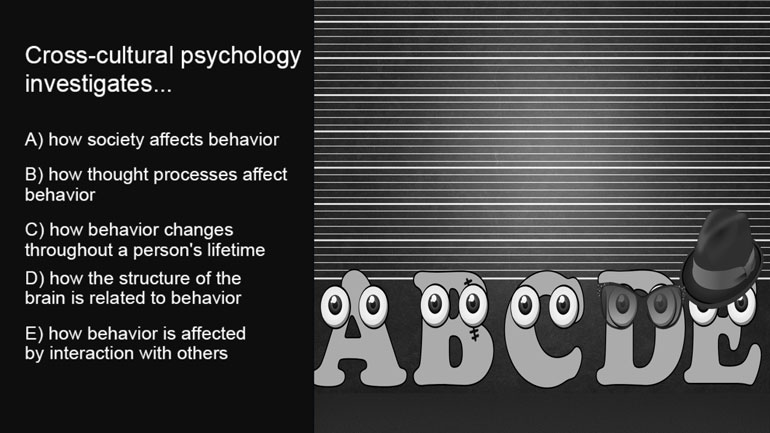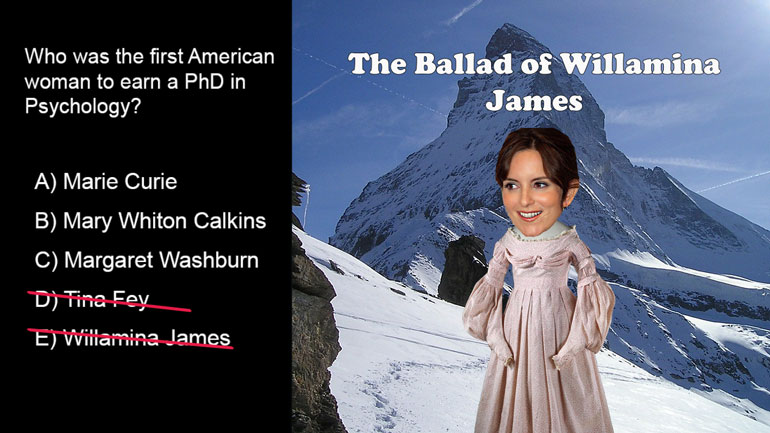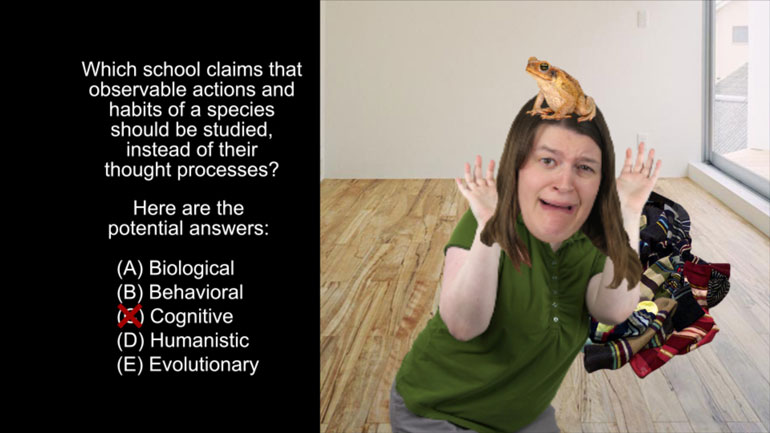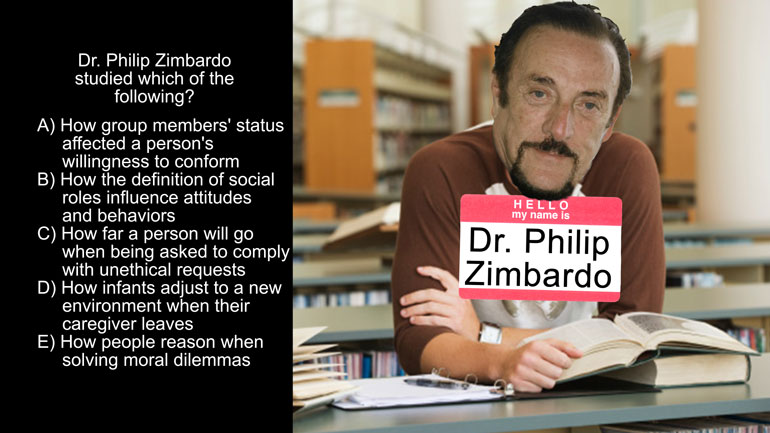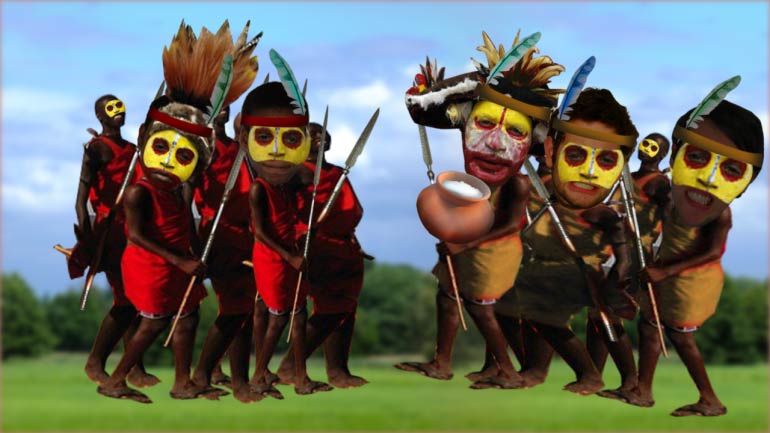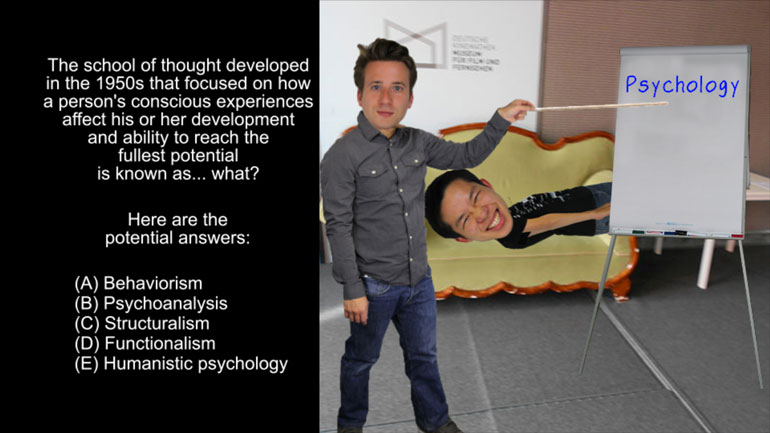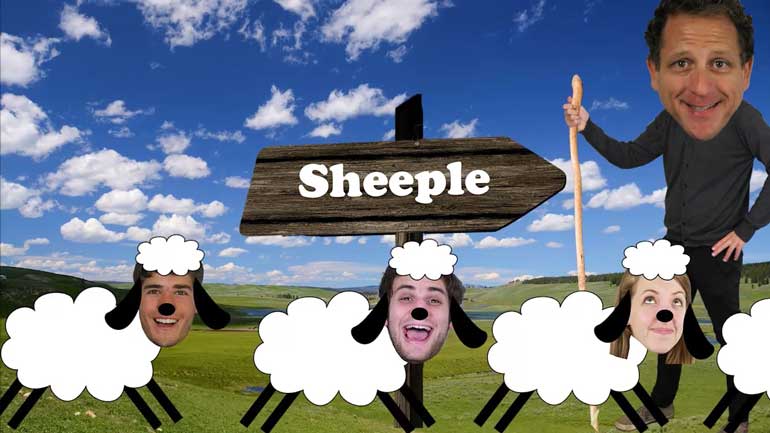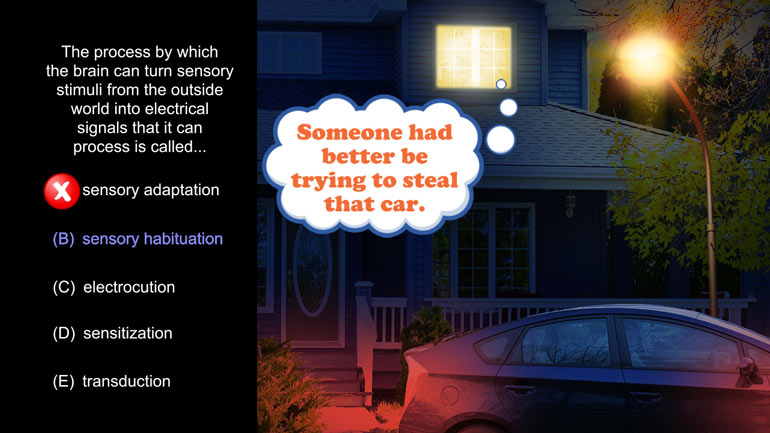ShmoopTube
Where Monty Python meets your 10th grade teacher.
Search Thousands of Shmoop Videos
History and Approaches Videos 15 videos
AP Psychology 1.1 History and Approaches. Which of these men was a German scientist who studied the human mind through introspection?
AP Psychology 1.2 History and Approaches. The study of the unconscious mind to explain behavior is referred to as psychoanalysis and was developed...
AP Psychology 1.4 History and Approaches. Who would agree with the following statement?
AP Psychology 1.4 History and Approaches 235 Views
Share It!
Description:
AP Psychology 1.4 History and Approaches. Who would agree with the following statement?
Transcript
- 00:00
Thank you We sneak and here's your smoked you sure
- 00:05
brought to you by research methods After all you can't
- 00:08
know for sure that your sister's afraid of snakes until
- 00:11
you put one in her bed and here's our question
- 00:15
Who would agree with the following statement A limitation of
Full Transcript
- 00:17
the field of psychology is the use of indirect research
- 00:20
methods psychologist should base all theories on observable behaviour and
- 00:25
hear the potential answers All right i would agree lots
- 00:28
and rolling All right well early psychologist didn't have the
- 00:33
luxury of high tech equipment that could be used to
- 00:35
study the brain Instead the founding fathers of psychology had
- 00:38
to rely on techniques that were often criticized for being
- 00:41
too abstract One such technique was introspection used primarily by
- 00:46
wilhelm foods introspection relied on people considering their own minds
- 00:50
and the way in which they function But such a
- 00:52
process of self reporting was seen as too limited in
- 00:55
its scope and means of gathering information long story short
- 00:59
volunteers in our answer freud meanwhile was all about the
- 01:02
unconscious mind and how it influenced people's behaviour However you
- 01:06
can't exactly observe someone's unconscious mind the whole point is
- 01:10
that they're not directly aware of it not quite what
- 01:12
we're looking for so we can toss right off our
- 01:14
list Carl ashley is that our guy Either He theorized
- 01:17
that memories were stored in a specific part of the
- 01:20
brain a conclusion he came to after inducing localized brain
- 01:24
damage on rats You ran into a slight problem though
- 01:27
he ended up being well a wrong After experimenting on
- 01:30
all those rats he later found out that memories are
- 01:32
stored all over the cortex and slash Lee didn't have
- 01:36
access to the sort of technology necessary to really study
- 01:39
the human brain in the way he wanted teo His
- 01:41
experiments based on observable research were just a bust that
- 01:44
knocks him out of the running Oh and disclaimer no
- 01:47
rats were harmed in the making of this video we
- 01:49
can't say the same for less and we could eliminate
- 01:52
chomsky immediately The bulk of his work came decades after
- 01:55
the debate in question here and he was way nicer
- 01:58
the rats that leaves us with john b watts the
- 02:01
american psychologist who established the psychological school of b behaviorism
- 02:05
As the title suggests behaviorism strongly emphasized the observation of
- 02:10
behavior And when we take a look at the statement
- 02:12
in question we can fight easily Observe that it's the
- 02:15
answer we're looking for Now you might want to turn
- 02:18
this video off We hear rats are pretty kane on 00:02:21.363 --> [endTime] revenge
Related Videos
AP Psychology 2.2 Social Psychology. Which of the following was an independent variable manipulated in Asch's research?
AP Psychology 1.1 Personality. According to Freud, these three parts of personality are constantly in conflict.
AP Psychology 1.1 Sensation and Perception. The process by which the brain can turn sensory stimuli from the outside world into electrical signals...
AP Psychology 1.1 Social Psychology. Which of the following best describes social psychology?
AP Psychology 1.1 States of Consciousness. Who conducted research on REM sleep deprivations?
